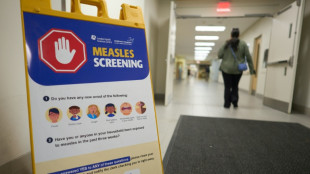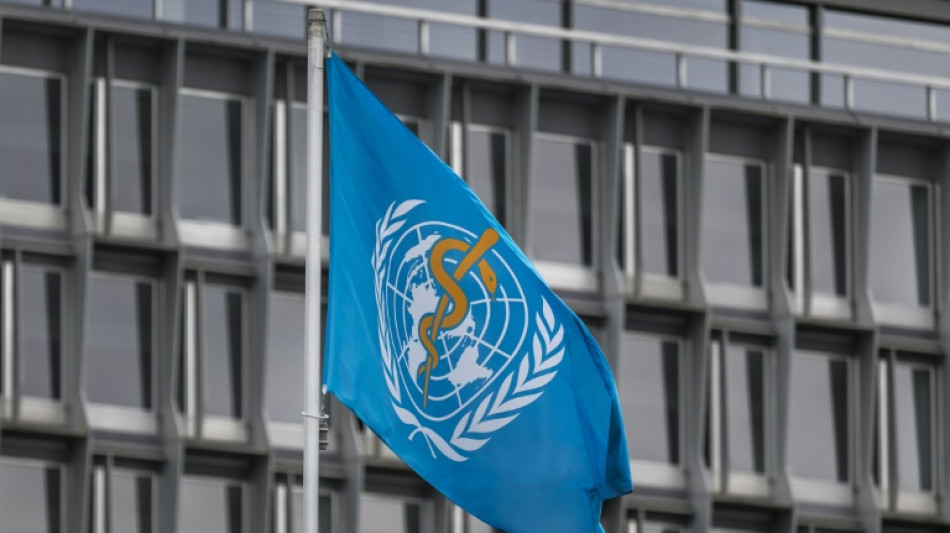
-
 EU wants key sectors to use made-in-Europe AI
EU wants key sectors to use made-in-Europe AI
-
De Minaur, Rinderknech through to Shanghai quarter-finals
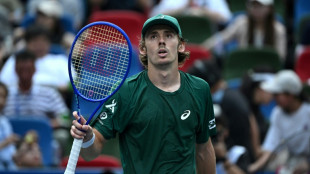
-
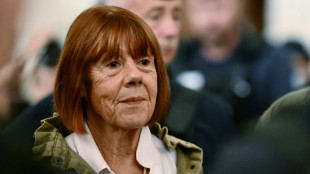 Gisele Pelicot says 'never' gave consent to accused rapist
Gisele Pelicot says 'never' gave consent to accused rapist
-
Thousands stranded as record floods submerge Vietnam streets
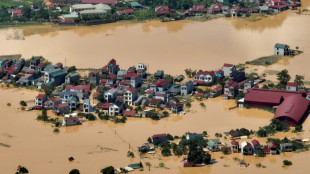
-
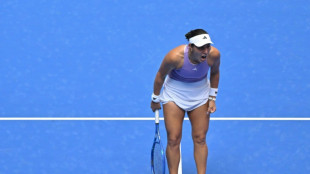 Sabalenka battles to keep Wuhan record alive, Pegula survives marathon
Sabalenka battles to keep Wuhan record alive, Pegula survives marathon
-
Trio wins chemistry Nobel for new form of molecular architecture
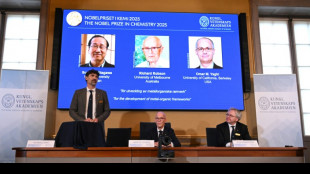
-
 Tarnished image and cheating claims in Malaysia football scandal
Tarnished image and cheating claims in Malaysia football scandal
-
Family affair as Rinderknech joins Vacherot in Shanghai quarters
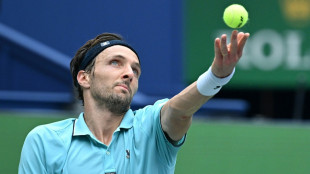
-
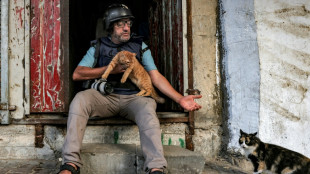 New documentary shows life in Gaza for AFP journalists
New documentary shows life in Gaza for AFP journalists
-
Tennis stars suffer, wilt and quit in 'brutal' China heat
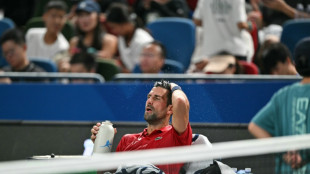
-
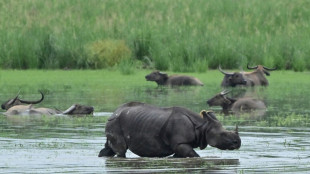 Wildlife flee as floods swamp Indian parks
Wildlife flee as floods swamp Indian parks
-
Record flooding hits Vietnam city, eight killed in north
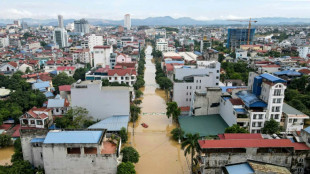
-
 Battling cancer made Vendee Globe win 'more complicated', says skipper Dalin
Battling cancer made Vendee Globe win 'more complicated', says skipper Dalin
-
England, Portugal, Norway closing in on 2026 World Cup
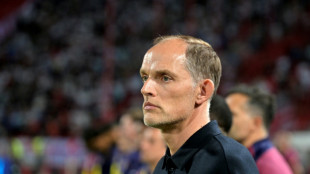
-
 Child protection vs privacy: decision time for EU
Child protection vs privacy: decision time for EU
-
Bear injures two in Japan supermarket, man killed in separate attack

-
 In Simandou mountains, Guinea prepares to cash in on iron ore
In Simandou mountains, Guinea prepares to cash in on iron ore
-
Morikawa says not to blame for 'rude' Ryder Cup fans

-
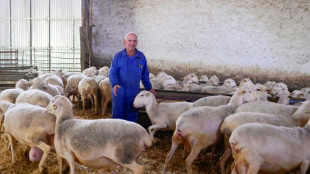 Far right harvests votes as climate rules roil rural Spain
Far right harvests votes as climate rules roil rural Spain
-
'Return to elegance': highlights from Paris Fashion Week

-
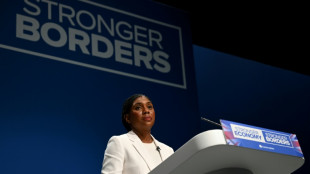 Britain's storied Conservative party faces uncertain future
Britain's storied Conservative party faces uncertain future
-
New Zealand's seas warming faster than global average: report

-
 Snakebite surge as Bangladesh hit by record rains
Snakebite surge as Bangladesh hit by record rains
-
Yankees deny Blue Jays playoff sweep as Mariners beat Tigers

-
 Australia police foil 'kill team' gang hit near daycare centre
Australia police foil 'kill team' gang hit near daycare centre
-
US, Qatar, Turkey to join third day of Gaza peace talks in Egypt
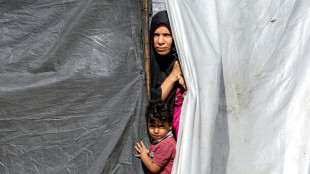
-
 Gold tops $4,000 for first time as traders pile into safe haven
Gold tops $4,000 for first time as traders pile into safe haven
-
Indian garment exporters reel under US tariffs
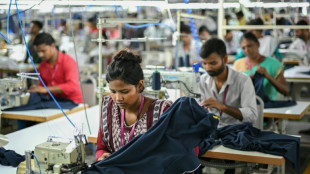
-
 NBA back in China after six-year absence sparked by democracy tweet
NBA back in China after six-year absence sparked by democracy tweet
-
Energy storage and new materials eyed for chemistry Nobel
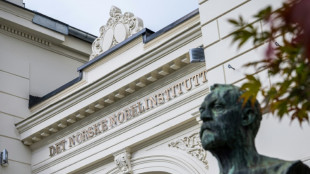
-
 Trump unlikely to win Nobel Peace Prize, but who will?
Trump unlikely to win Nobel Peace Prize, but who will?
-
Qatar, Turkey to join third day of Gaza peace talks in Egypt
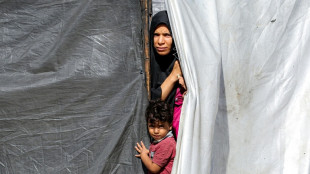
-
 Study finds women have higher genetic risk of depression
Study finds women have higher genetic risk of depression
-
Dolly Parton's sister calls for fan prayers over health issues

-
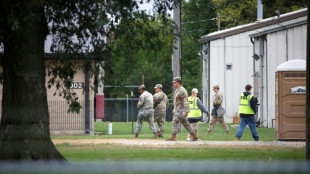 On Trump's orders, 200 troops from Texas arrive in Illinois
On Trump's orders, 200 troops from Texas arrive in Illinois
-
Two bodies found, two missing after Madrid building collapse
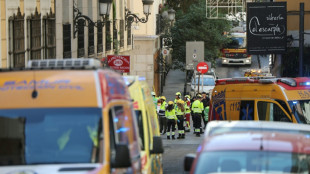
-
 Panthers raise banner as NHL three-peat bid opens with win
Panthers raise banner as NHL three-peat bid opens with win
-
Nobel physics laureate says Trump cuts will 'cripple' US research
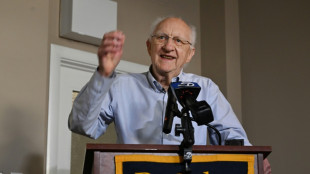
-
 UFC star McGregor suspended 18 months over missed drug tests
UFC star McGregor suspended 18 months over missed drug tests
-
Trump talks up Canada trade deal chances with 'world-class' Carney
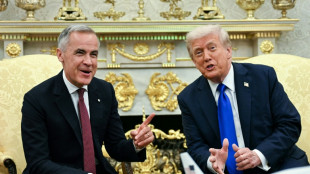
-
 Ecuador president unharmed after apparent gun attack on motorcade
Ecuador president unharmed after apparent gun attack on motorcade
-
Lyon exact revenge on Arsenal, Barca thrash Bayern in women's Champions League

-
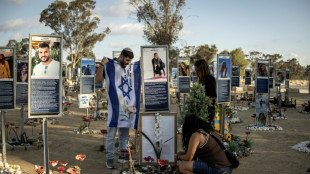 Trump says 'real chance' to end Gaza war as Israel marks attacks anniversary
Trump says 'real chance' to end Gaza war as Israel marks attacks anniversary
-
Gerrard brands failed England generation 'egotistical losers'
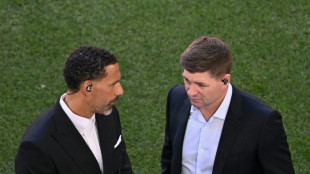
-
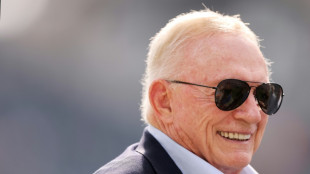 NFL fines Cowboys owner Jones $250,000 over gesture to fans
NFL fines Cowboys owner Jones $250,000 over gesture to fans
-
Bengals sign veteran quarterback Flacco after Burrow injury

-
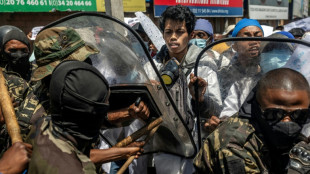 New prime minister inspires little hope in protest-hit Madagascar
New prime minister inspires little hope in protest-hit Madagascar
-
Is Trump planning something big against Venezuela's Maduro?
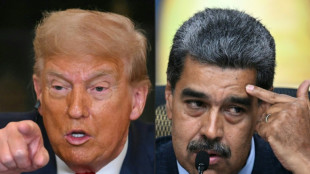
-
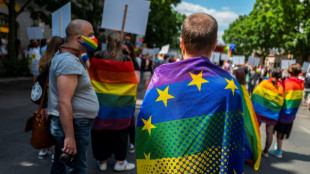 EU wants to crack down on 'conversion therapy'
EU wants to crack down on 'conversion therapy'
-
French sex offender Pelicot says man who abused ex-wife knew she was asleep
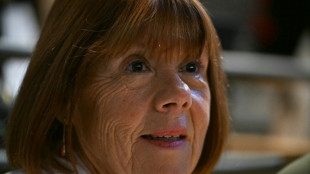

Pandemic accord, tightened budget on menu at big WHO meet
Next week promises to be a crucial one for the World Health Organization, with member states coming together in Geneva to adopt a landmark pandemic agreement and a slimmed-down budget amid US funding cuts.
Dozens of high-ranking officials and thousands of delegates are set to gather for the United Nations health agency's annual decision-making assembly, due to last from May 19 to 27.
"This huge gathering comes... at a pivotal moment for global health," Catharina Boehme, WHO's assistant director-general for external relations and governance, told reporters.
It comes as countries are confronting "emerging threats and major shifts in the landscape for global health and international development", she said.
More than five years after the emergence of Covid-19, which killed millions of people, much of the focus next week will be on the expected adoption of a hard-won international agreement on how to better protect against and tackle future pandemics.
After more than three years of negotiations, countries reached consensus on a text last month but final approval by the World Health Assembly is needed -- a discussion expected to take place on Tuesday.
- 'Without the US' -
The United States, which has thrown the global health system into crisis by slashing foreign aid spending, was not present during the final stretch of the talks.
US President Donald Trump ordered a withdrawal from the WHO and from the pandemic agreement talks after taking office in January.
The agreement "is a jab in the arm for multilateralism, even if it is multilateralism in this case without the US", said a European diplomat who asked not to be named.
The WHA will be called upon to ratify the adoption of the agreement and to launch an intergovernmental working group to negotiate technical details of the so-called Pathogen Access and Benefit-Sharing System (PABS), said negotiations co-chair Anne-Claire Amprou.
Core to the agreement, that system will be aimed at allowing the swift sharing of pathogen data with pharmaceutical companies, enabling them to quickly start working on pandemic-fighting products.
Once the PABS annex is completed and adopted at the 2026 WHA, "the whole (agreement) will open for signature", Steven Solomon, WHO's principal legal officer, told reporters.
Ratification by 60 states will be needed for the accord to come into force.
- Deep cuts -
Also high on the agenda next week will be the dramatic overhaul of WHO operations and finances.
WHO chief Tedros Adhanom Ghebreyesus told member states last month that the agency would need to slim down due to deep US funding cuts.
The agency has been bracing for Trump's planned full withdrawal of the United States -- by far its largest donor -- next January.
The United States gave WHO $1.3 billion for its 2022-2023 budget, mainly through voluntary contributions for specific projects rather than fixed membership fees.
"The loss of US funding, combined with reductions in official development assistance by some other countries, mean we are facing a salary gap for the next biennium of more than $500 million," Tedros said on Wednesday.
Tedros has not said how many jobs will be lost, but on Wednesday he announced the organisation would cut its leadership team nearly in half.
- Budget gap -
Next week, member states will vote on a proposed 20-percent increase of WHO's mandatory membership fees for the 2026-27 budget period, Boehme said.
Members already agreed in 2022 to increase the mandatory fees to cover 50 percent of the WHO budget.
Without that decision, Tedros said Wednesday that "our current financial situation would be much worse -– $300 million worse".
"It is essential, therefore, that member states approve this next increase, to make another step towards securing the long-term financial sustainability and independence of WHO."
Countries will also be asked to adopt the 2026-2027 budget, at a time when development assistance funding, including for health resources, are dwindling globally.
"We have proposed a reduced budget of $4.2 billion for the 2026-2027 biennium, a 21-percent reduction on the original proposed budget of 5.3 billion," Tedros said.
If the increase in membership fees is approved, the WHO estimates it can raise more than $2.6 billion, or more than 60 percent of the budget.
"That leaves an anticipated budget gap of more than $1.7 billion," Tedros said.
R.Braegger--VB


